Hong Kong athletes delivered stellar performance both at the Tokyo Olympics and the National Games of the PRC. Their success stoked a sports craze and the government announced five new measures conducive to sports development earlier. The topic of promoting professional and industrialized sports has caused heated discussion in the community.
Herman Hu: HK Team’s Assiduous Efforts Culminated into Success
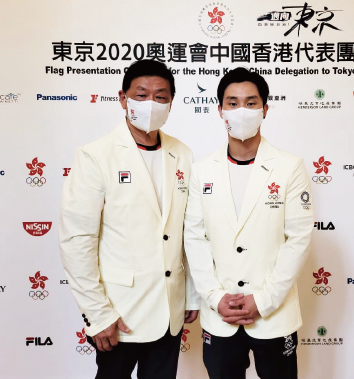
The government announced five measures to support sustainable development of sports in Hong Kong. These include expediting the new building project of the Hong Kong Sports Institute (HKSI), establishing a fund to enhance the competitiveness of athletes, strengthening sports development at the school level, strengthening support for elite athletes’ dual career development in sports and academic pursuits, and developing the sports industry. The government is calling on the public to root for our athletes’ quest for excellence.
Current support policy on the right track
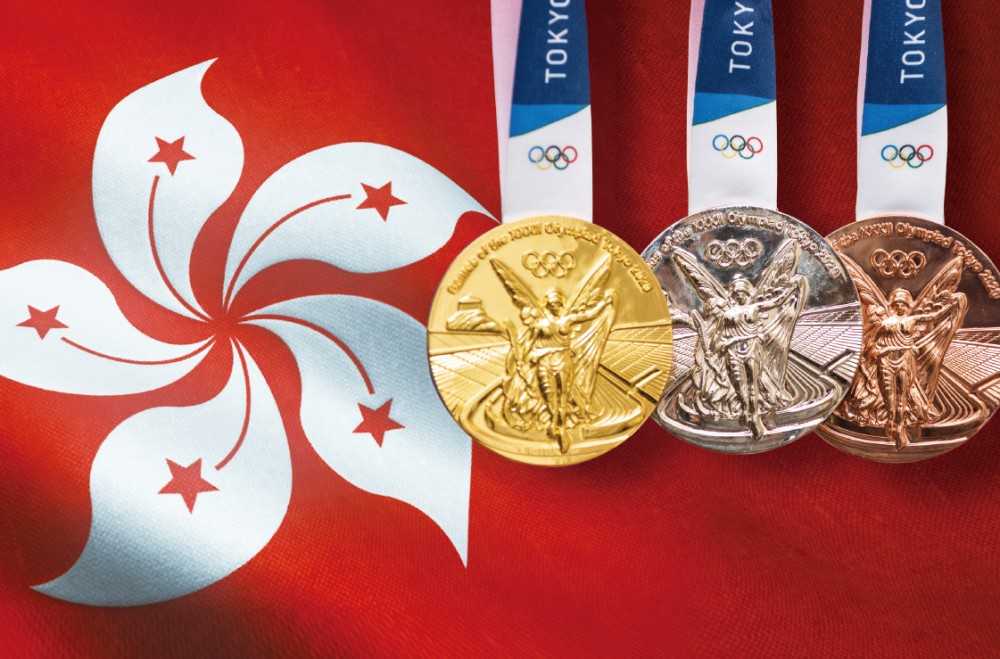 In fact, the government began developing the sports industry more than a decade ago, and greater resources were allocated towards this end in recent years. Since 2017, new resources totaling HKD60 billion have been deployed and recurrent expenditure for sports development has seen steady increase. According to Herman Hu, Vice-President of the Sports Federation & Olympic Committee of Hong Kong, China (SF&OC) as well as the Chamber’s Vice-chairman, the outstanding performance of the Hong Kong Team for 2020 Tokyo Olympics was by no means fortuitous. He thinks the current support policy is on the right track.
In fact, the government began developing the sports industry more than a decade ago, and greater resources were allocated towards this end in recent years. Since 2017, new resources totaling HKD60 billion have been deployed and recurrent expenditure for sports development has seen steady increase. According to Herman Hu, Vice-President of the Sports Federation & Olympic Committee of Hong Kong, China (SF&OC) as well as the Chamber’s Vice-chairman, the outstanding performance of the Hong Kong Team for 2020 Tokyo Olympics was by no means fortuitous. He thinks the current support policy is on the right track.
“There are about 500 full-time athletes in Hong Kong, and I am confident we can provide adequate resources for all.” He added that SF&OC was funded by the government to set up Hong Kong Athletes Career & Education Programme (HKACEP) very early to give employment, education and life skills support as well as consultation service to athletes at or near retirement. “We have also launched a free one-year online course jointly with an overseas university for outstanding Hong Kong athletes to help them balance sports and academic studies.”
Sports activities are strong economic drivers
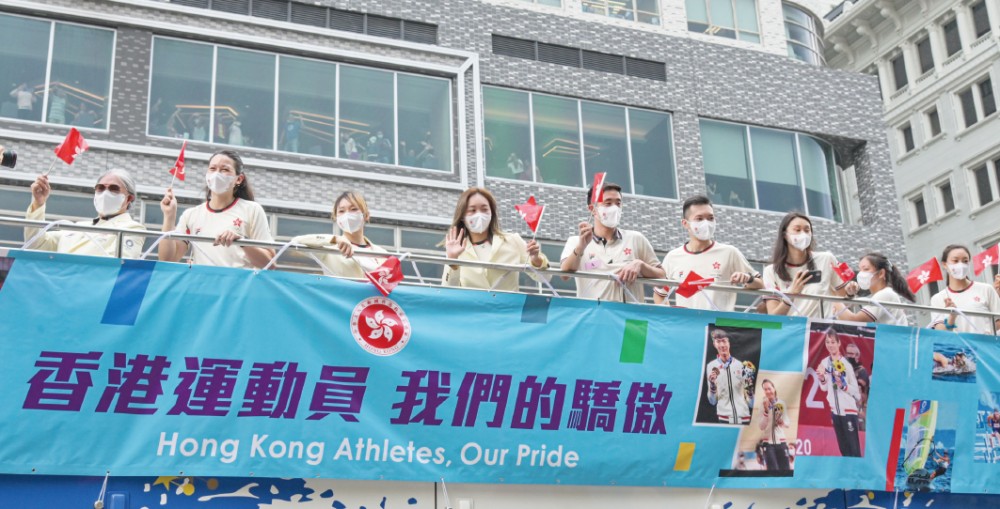 Quoting data from the Census and Statistics Department, Hu revealed that, at prevailing market prices, total worth of sports and related activities in 2019 came to HKD59 billion and these events created as many as 83,000 jobs. The positive knock-on economic effect is huge and there is great development potential.
Quoting data from the Census and Statistics Department, Hu revealed that, at prevailing market prices, total worth of sports and related activities in 2019 came to HKD59 billion and these events created as many as 83,000 jobs. The positive knock-on economic effect is huge and there is great development potential.
As for specific measures to promote the sports industry, Hu indicated a representation has been submitted to the government to invoke centralized resources and policies. SF&OC is also entering bids actively to host world-ranking sports competitions which will attract Mainland and overseas athletes to visit Hong Kong and thus promote the development of sports tourism in Hong Kong.
Plans to upgrade sports infrastructure
The State Council announced earlier that the 15th National Games in 2025 will be co-hosted by Guangdong, Hong Kong and Macao. Hu said it is an opportunity for the three sides to give play to their advantages in sports while assuming their individual roles to make coordinated efforts. However, he admitted that Hong Kong’s facilities may not be fully adequate. Works are required in the future to upgrade our sports infrastructure.
Promoting sports can benefit Hong Kong in many ways. Hu pointed out that people can stay healthy and prevent illnesses by playing sports, which will in turn reduce the pressure on our public health service and lower healthcare expenditure. On the other hand, Hong Kong athletes’ success in the international arena brings pride to the whole community and helps build up personal and national identities. He hopes that, led by the government, Hong Kong’s sports industry will enjoy promising prospects.
Amy Chan: Inject Positive Energy to Society with the Sports Industry
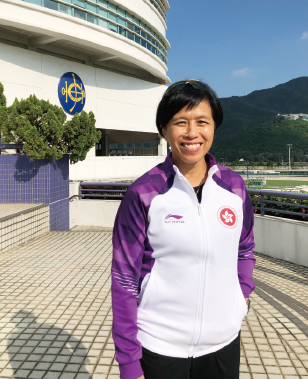
Amy Chan, Chairman of the Hong Kong Elite Athletes Association, was a top badminton player who made history by bringing home Hong Kong’s first ever Olympic bronze medal for the sport. She stepped down at the height of her sporting career to study in the USA.
Currently Headmistress of Hong Kong Jockey Club’s Apprentice Jockeys’ School, Chan witnessed Hong Kong athletes making advances one step at a time over the years. She said frankly that the stellar performance at the 2020 Tokyo Olympics was not fortuitous at all. Evidently, Hong Kong athletes are a force that should not be under-estimated. “Hong Kong athletes have been making progress over the decades, and our sports software and hardware are being enhanced on an ongoing basis. Today’s results are hard earned and veritable.”
Dual-track education suggested
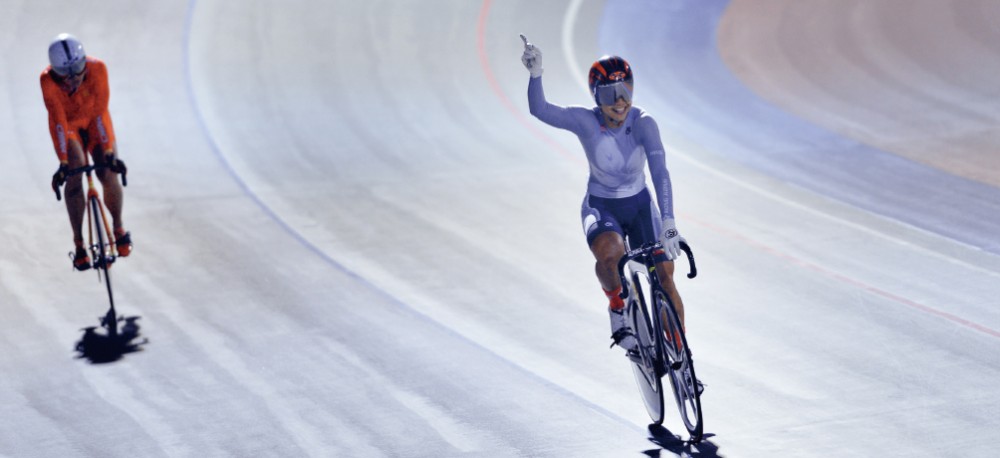 Chan pointed out that in the past some industries tended to follow a tradition of apprenticeship and inheritance of craftsmanship or experience. There were no approved qualification frameworks. Pure academic development without practical experience stunned development and growth of these sectors. She feels that the sports industry must strike a balance between practice and theory so as to inject new momentum to the sector.
Chan pointed out that in the past some industries tended to follow a tradition of apprenticeship and inheritance of craftsmanship or experience. There were no approved qualification frameworks. Pure academic development without practical experience stunned development and growth of these sectors. She feels that the sports industry must strike a balance between practice and theory so as to inject new momentum to the sector.
While the government set up HKACEP way back in 2008, Chan said additional approaches are worth considering. For example, under the dual-track education system currently in force in Germany, one of the world’s sporting powers, youths are required to receive theoretical academic education at school while taking up apprenticeship and training in business enterprises. The cost is shared by the government and the industry.
“We can learn from this education approach and practice it in the sports industry, enabling athletes to do schoolwork and develop their athletic talent in parallel. With this arrangement, young athletes would not be forced to give up sports due to everyday life pressure.”
Elite sports industry key to avoid talent loss
As for the government’s five new measures in support of sports development, Chan said they reflect that sports are given increasingly greater weight in society today. These measures will also raise public awareness.
Chan agrees with the policy of developing professional and industrialized sports because in sports it is important to hand down and accumulate experience to identify and explore opportunities for innovation or improvement. It is hard to find suitable replacements should any posts become vacant during this process. She believes promoting professionalism and industrialization could avoid talent loss and support the inheritance of experience.
Chan said athletes themselves are models of high virtues: a fine display of perseverance and unyielding spirit. “An athlete can spend 10,000 hours in punishing training to improve his/her performance by only one second.” Their positive image can bring positive energy to society. It is a sector well worth supporting with necessary resources.




